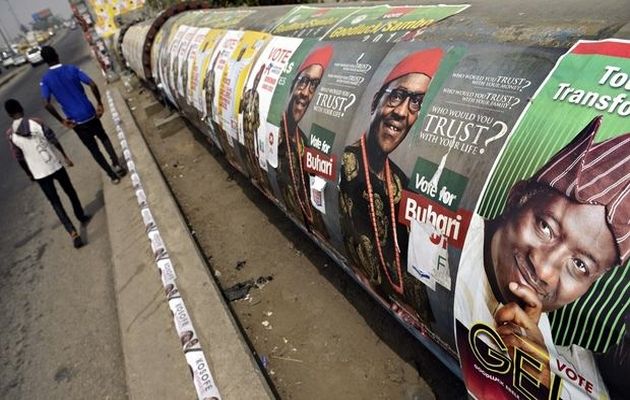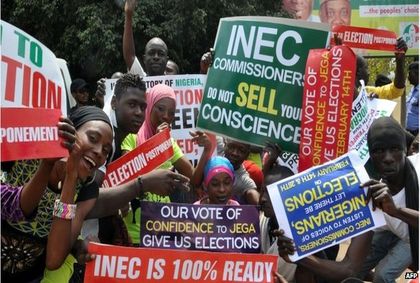Nigeria’s election postponed to fight Boko Haram
A coalition formed by 7,800 soldiers from Nigeria, Niger, Cameroon and Benin hopes to defeat the terrorist group before the election.
Protestante Digital · ABUJA · 13 FEBRUARY 2015 · 09:30 CET

Nigeria was going to celebrate its general election next weekend, but it has been postponed by the Electoral Commission until March 28th, because of the conflict with the Islamic terrorist group Boko Haram in the north of the country.
Since the beginning of the year, Boko Haram’s violence has increased, causing thousands of victims. The attack against the city of Baga is considered one of the worst massacres in the country's history.
The terrorists destroyed the city and its surroundings, without the army’s opposition, that had abandoned their positions, claiming that they did not have enough resources to confront the attack.
In the last five years, Boko Haram has killed 13,000 people, and 3.3 million people have been made homeless.
BOKO HARAM´S TERRIBLE AGGRESSIVENESS
The situation of the northern states, specially in Boro, has become very difficult. The sate of emergency declared in 2013, has not stopped the terrorist group, which has gained power in that part of the country, until it proclaimed, in august 2014, its own “Islamic state”, with a total control over some cities.
Boko Haram also easily controls the borders with Niger and Cameroon, and that has allowed it to recruit many followers. It is estimated that they have between 4.000 and 6.000 armed members.
The coalition, formed by the security forces of Nigeria, Niger, Cameroon and Benin, hopes to weaken the terrorist with the 7.800 soldiers they have. It is a very difficult challenge to achieve in only six weeks, knowing that Boko Haram is a stronger enemy each day.

ELECTIONS DOUBTS
Meanwhile, Nigerians are worried because of the politicisation of the conflict with the terrorists. On the one hand, the executive Goodluck Jonathan wants to show himself to be strong, although the Nigerians do not trust in his skills, after four unsuccessful years at the government.
And in the other hand, the opposition, lead by the Muslim leader Muhammadu Buhari, believes that the elections’ delay it is just a government’s manoeuvre, to gain time and keep power.
An indefinite number of voters (maybe millions), from the Northern states of Borno, Yobe and Adamawa, are not allowed to exercise their right of voting. Stateless because of Boko Haram´s violence, they will probably not be able to have their permanent voters cards, required to identify them in the polling stations.
Bonajo Badejo, a Nigerian lawyer, said in an email from his office in Lagos that “if the postponement is born out of genuine effort to ensure a free, fair and credible election, then there is nothing to worry about," "But if it turns out that the electoral process is being manipulated, then it is a sad day indeed for Nigeria and our nascent democracy", he added.
CHRISTIAN REACTIONS
There have been many reactions to this delay from different religious groups in Nigeria.
Danladi Musa, Nigeria’s representative of the Christian relief association Tearfund, who is based in Jos, last week, told Christian Today that insecurity was the biggest issue for voters, and that there was a real concern that voter cards would not be distributed to everyone, particularly in the North East.
“Many Nigerians are eager to cast their votes,” Musa said, “but the Commission was facing significant challenges”.
Rev John Bakeni, the secretary of the Roman Catholic Diocese of Maiduguri, has praised the move to postpone the elections, saying it will mean more people are able to vote.
"Many Christians here had not collected their voter cards and this may afford them time to do so," Bakeni said according to the Washington Post. "I hope they can do in six weeks what they have failed to fix in five years," he added, commenting on the plans to tackle growing insecurity in Nigeria.
Published in: Evangelical Focus - world - Nigeria’s election postponed to fight Boko Haram
